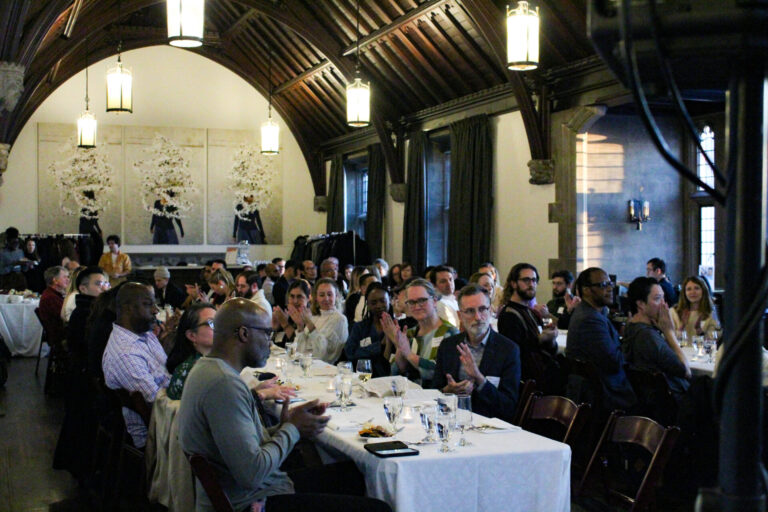Collaborative Solutions for Expanding Social Infrastructure with the Social Purpose Real Estate (SPRE) Accelerator
By Nigel Carvalho



As land and construction costs rapidly increase in Ontario and beyond, opportunities to build crucial social infrastructure such as affordable housing and accessible community spaces are becoming scarce. The Social Purpose Real Estate (SPRE) Accelerator was designed to creatively intervene in the real estate status quo by speeding up the pre-construction phase of the development process for mission-driven organizations.
Launched in September 2022, the free six-month program supports non-profits that own property or hold a long-term lease in improving or intensifying their land to address the changing needs of their communities, meet rising demand for their essential social services, and, in some cases, add new uses to their existing sites.
The SPRE Accelerator is just one program from the Infrastructure Institute at the School of Cities, University of Toronto that effectively puts the team’s urban research into practice under the direction of Matti Siemiatycki, professor of Geography and Planning at the University of Toronto. The Accelerator’s programming includes bi-weekly workshops, mentorship from industry experts, and planning and design services provided by the team’s in-house practitioners. Through this curriculum, the program facilitates opportunities for sharing the knowledge, industry connections, and practical support necessary for the cohort to expand their services.
The program will culminate with a pitch night where the first SPRE Accelerator Program cohort’s nine participating groups will present their individual proposals to potential sponsors and partners with the intention of securing the support that they need to move their projects forward after the program.
While the 2022-2023 cohort exclusively involves sites owned by non-profits, future cohorts may welcome projects on public lands or potential creative social purpose ideas on private lands, areas where there is also huge untapped potential to deliver social benefit and promote collaboration.
Through this unique opportunity to provide free support that promotes the use of underutilized sites for socially driven purposes, the SPRE Accelerator addresses several significant issues impacting our cities.
A Curriculum that Addresses Key Development Barriers and Promotes Industry Collaboration
The complexity of the development process makes understanding what is feasible on a site and the steps required to build it a massive undertaking for those without development experience, especially for non-profits who provide housing and social services at low costs. The Accelerator addresses this knowledge-barrier through bi-weekly studio sessions on topics such as concept development and visualization, building a pro forma, applying for funding, the municipal approvals process, and risk mitigation.
No two organizations are approaching their projects in the same ways or have access to the same resources. With this in mind, the Accelerator provides tailored insights and services that will enable the organizations to initiate necessary conversations with lenders, consultants, and municipal staff. To support these efforts, each organization is strategically paired with a mentor who can offer expert guidance while Infrastructure Institute staff provide planning and design work on a case-by-case basis. In addition to the SPRE mentors, the program is growing an ecosystem of partners from all real estate sectors and disciplines to bridge the gap between the development industry and non-profits in a collaborative process.
Leveraging Existing Real Estate Assets to Address the Housing Crisis
Enabling organizations dedicated to investing in affordable housing, but who need some early-stage support to overcome initial barriers to development, is an under-explored approach that can contribute to addressing the housing crisis.
The SPRE Accelerator acknowledges that there is plenty we can do with existing spaces to increase the supply of housing that is truly affordable and supportive of those most in need. While the latest controversial piece of provincial housing legislation, Bill 23, seeks to give developers access to Greenbelt land in the name of increasing the housing supply, the Accelerator recognizes the benefit of developing land within our urban boundaries.
Non-profit organizations with access to land – a valuable and limited resource – in rapidly intensifying areas hold a powerful opportunity to expand the reach of their existing services or add new complementary uses such as affordable housing to their sites.
A broader uptake of this approach would have positive environmental and social impacts in the region through urban densification that, in addition to limiting urban sprawl and car dependency, helps to ensure that the non-profit housing supply grows along with the booming profit-driven industry around it.